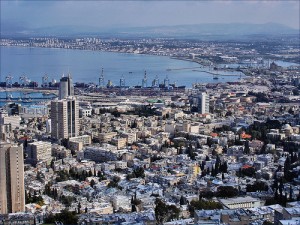 The Middle East has become one of the most popular tourist destinations, and is expected to become even more so, but the current unrest has taken its toll.
The Middle East has become one of the most popular tourist destinations, and is expected to become even more so, but the current unrest has taken its toll.
Even though Dubai has been spared the awful drama that has gripped many countries in the Middle East – most dramatically Tunisia, Egypt, and Libya – the Emirate won’t be spared the subsequent loss to its tourism industry. Prince Harry, for example, has cancelled his intention to participate in a charity polo tournament.
Other countries in the region will suffer even greater losses as international tourists and businesspeople cancel their trips amidst unrest and rising oil prices, the Media Line reports. Concerted efforts by Saudi Arabia, Qatar, and the UAE to drive tourism traffic in order to diversify their economies will be hampered until peace is restored. In the meantime, the environmental boon (less air traffic = fewer carbon emissions) comes with unhappy socio-economic consequences, emphasizing the need to boost regional resilience in the event of future environmental and political instability.
“Prince Harry was very much looking forward to the visit but feels that it would be insensitive for him to participate in a sporting event at a time when there are matters of greater priority to focus on in the region,” the palace announced last Friday. Other cancellations are far less high-minded.
In January, when Tahrir Square in Cairo received its first wave of protesters, Egypt lost $178 million. Pyramid and beach visitors concerned about their safety also cancelled their February plans, with losses amounting to $825 million. Of course, Egypt might be able to recoup their losses from Mubarak’s frozen assets?
Nowhere else has the tourism market grown so rapidly as in the Middle East. Last year alone, 14% more people traveled to the region, generating $60 million.
Euromonitor International’s Research Manager for travel and tourism, Sana Toukan, told the paper that only those countries that are impacted by dissent are being avoided, including Egypt, Tunisia, Libya, Yemen, Bahrain, Jordan, Lebanon, Oman, and Algeria. Six of those belong in the top eight most visited countries, however, so the losses are significant.
The US State Department has issued travel warnings to 9 countries.
Tourism supports an average 8% of the local workforce. Balancing tourism with agricultural and clean energy innovation would act as an important buffer for communities over-reliant on foreigners for income. Despite projections that tourism in the Middle East will rise 89% over the next decade (that’s an awful lot of plane rides), increasing self-sufficiency will keep the region more stable in the long-term.
This is good for the environment, and it is good economics.
:: Media Line
More on travel in the Middle East:
Mother Of Five Becomes First Emirati To Visit Antarctica
Will Libya’s Unrest Trash Its Historical Sights?
Restoring Iraq’s “Garden of Eden” – Mesopotamian Marshlands
image via luigig




Comments are closed.